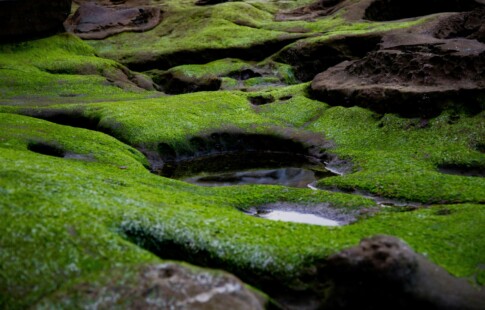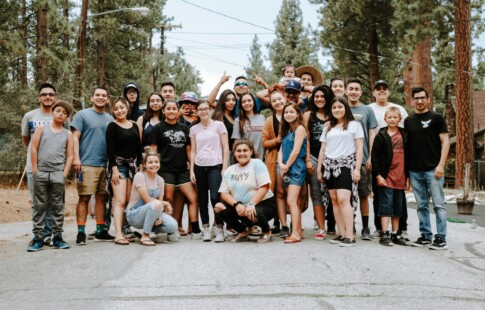
Dealing With Climate Anxiety? Try These Practical Ways to Reduce It
We are reader-supported. When you buy through links on our site, we may earn affiliate commission.
Have you found yourself feeling distressed about climate change and its impacts on humans, other living things and the planet? If so, you’re probably experiencing climate anxiety. It’s becoming a more common experience for many people, especially if they feel powerless to stop what’s happening. The good news is that we can improve things especially by working together towards larger goals. Easing climate anxiety is within your control, too.
Make Small, Manageable Changes
People should start by analyzing actions within their control that can help the planet — even in seemingly tiny ways. The exact actions vary depending on someone’s lifestyle, budget and other factors.
Someone might start walking or biking to work instead of driving their car. That decision reduces emissions and could help them stay healthier, too. Another possibility is to prioritize purchasing reusable and durable items. If a person can use products for years — or maybe even the rest of their lives — such goods will dramatically reduce the amount of associated waste.
These methods of curbing climate anxiety are all about encouraging people to make accessible but meaningful changes rather than feeling hopeless or becoming complacent. Individuals can also set good examples to influence others in their households or communities. Then, one person creates a ripple effect for positive action.
Recognize and Disrupt Repetitive Thoughts
Many people who analyze patterns in their repetitive thoughts often find they fall into two broad categories: Rumination and worry. Rumination occurs when individuals become fixated on negative past experiences, often being hard on themselves about how they should have handled those situations differently. Then, worry involves focusing one’s thoughts on future events or possible outcomes.
Researchers developed an online course that helps people tackle both those kinds of repetitive thoughts. The curriculum contained three lessons to finish over six weeks. Some of the content’s broad takeaways are easily applied to climate anxiety.
For example, it often helps when people can recognize and label their repetitive, negative thoughts. Next, individuals should be alert for times when the things on their minds have become powerful enough to cause unproductiveness. That’s a great time to try and redirect that negative energy into something positive. Rather than someone letting their mind race, they could distract themselves by cooking a meal or taking a walk.
People can look at manageable ways to solve the problems that are making them worry, too. Maybe someone’s climate anxiety got triggered when they noticed a lot of litter near a local river. Joining a cleanup project allows them to turn negative thoughts into positive action.
Use Climate Awareness to Teach Others
Early education professionals are in excellent positions to help children learn sustainable behaviors and how to be good stewards of the Earth. However, people don’t need formal teaching backgrounds or licenses to teach others what they’ve learned over the years.
A good starting point is for people to think of sustainability tips they practice that could benefit others. Perhaps someone developed a quick system for sorting their waste or capturing rainwater to use for irrigating their garden. Whatever the case may be, there’s a good chance climate-conscious people have tips that would benefit others. Sharing that knowledge can go a long way in relieving climate anxiety.
Something important to remember about climate change and the planet’s future is that no single person will come up with the magic solution to wholly address the problems we currently face. That’s because there is no universally applicable solution. People must work together on shared goals, contributing however they can.
Individuals experiencing climate anxiety should look for accessible ways to share what they know. Maybe that means answering someone’s question on an online forum and sharing plenty of real-life examples. It could also involve taking a young person on a nature walk and pointing out some of the local plants and wildlife.
Learning can certainly happen in formal settings such as classrooms, but it can also occur almost anywhere. All a person needs is a willingness to tell others what they know and listen to what those people have to say.
Focus on Building Local Relationships
Many people are already involved in their communities through clubs, churches and sports teams. However, they might not consider that community involvement as an alleviator of climate anxiety.
Fortunately, experts say becoming more involved in one’s local area is a great way to foster relationships that could lead to collective action. For starters, it could show people they’re not alone in how they feel. Anxiety about the climate can become an isolating experience if people keep it bottled up. However, expressing the feelings to others can reveal that more individuals feel the same.
Building a local relationship could also mean getting to know the vendors at a local market and prioritizing buying their products instead of getting similar things from a grocery store. Those goods probably traveled much shorter distances than those in large retail stores, which is good for the planet.
Plus, getting to know someone such as a local farmer could increase familiarity with their planet-friendly practices. Perhaps agricultural professionals have specific tactics to prevent wasting water or have worked out ways to use fewer pesticides. Getting first-hand perspectives about those choices can motivate consumers to be especially supportive of people who share their values.
One of the most advantageous things about building local relationships is it will help individuals connect with others who may be feeling similar levels of climate anxiety. Having others to confide in or bounce ideas off of can allow people to feel empowered and remind them there are still actions they can take.
Limit Your Media Exposure
It’s wise to stay in touch with what’s happening locally and around the world. But many people find it’s much too easy to come across depressing stories — about the planet or otherwise — that make them feel more anxious than ever.
People should try to work out plans for how they can stay informed without becoming overwhelmed. Remember that sensationalism sells, and that often means reporters cover more bad news than good. Sure, news readers can find plenty of negative climate-related stories, but there are positive things happening, too.
One practical strategy is setting time limits for browsing news sites or any places you’re likely to see headlines. Then, there’s less chance of coming across something that makes your climate anxiety spike. That option allows you to still stay informed without getting overwhelmed.
Another possibility is to use your online free time for specific purposes. For example, you may need to spend large chunks of your day online for work, and there’s no way around that. However, when you’re at home and bored, avoid going online just to use up time. The diversity of the internet means you could easily come across something distressing. Being more specific about your online time should reduce the upsetting instances.
Start Addressing Your Climate Anxiety
The final thing to remember is that there’s no magic fix for climate anxiety, and not all solutions work for every person. Experimenting with several tips to find the most useful ones is a great way to develop good coping skills.
Share on
Like what you read? Join other Environment.co readers!
Get the latest updates on our planet by subscribing to the Environment.co newsletter!
About the author

Steve Russell
Steve is the Managing Editor of Environment.co and regularly contributes articles related to wildlife, biodiversity, and recycling. His passions include wildlife photography and bird watching.





